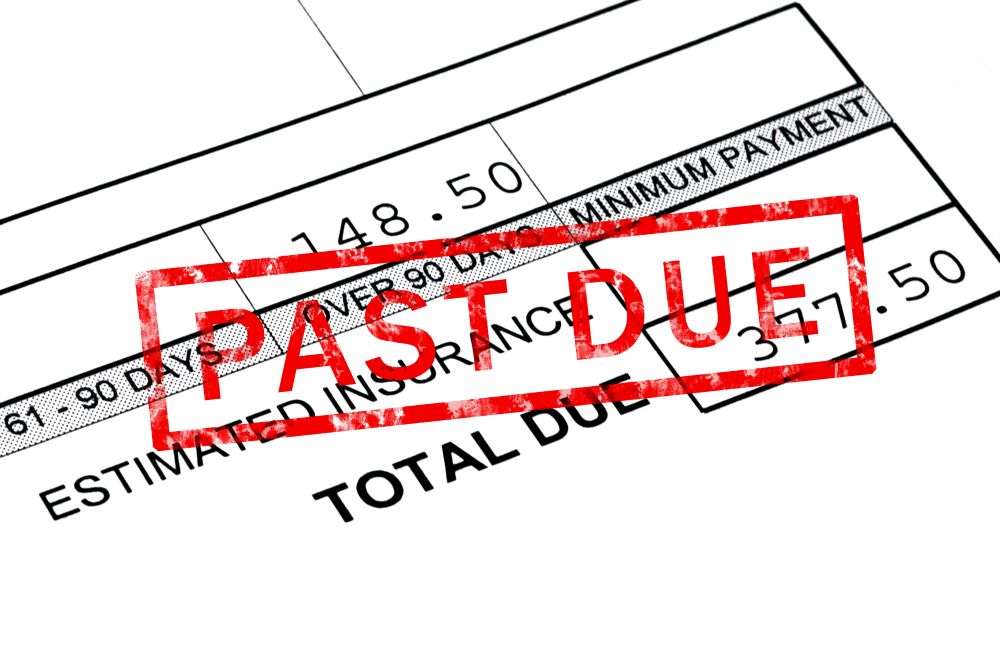Are You Protected from Tax Debt Collection?
Written by Cooper & Friedman PLLC on April 25, 2023

Following the annual tax season where a majority of Americans get tax refunds, there is still a small percentage that end up owning more taxes. Additional taxes can be a big shock if you’re not expecting it and usually receive a refund every year but, if you pay them on-time, you shouldn’t have to worry about it until next year once you deal with them. If you neglect to pay your tax debt, however, it could land you in some hot water with the IRS.
When it comes to debt collection practices, we know that the American people have safeguards in place to stop unfair, abusive, or deceptive debt collection under the Fair Debt Collection Practices Act (FDCPA), which is monitored by the Federal Trade Commission (FTC), in regard to personal or delinquent debts.
But are you still protected when it comes to tax debt?
The Collection Process
Before we get into collections, you should know the process that will happen if you neglect or refuse to pay your overdue taxes.
- You’ll receive a bill for the amount you owe.
- This bill starts the collection process, which continues until your tax debt is satisfied or until the IRS may no longer legally collect the tax.
- The first notice you receive will be a letter that explains the balance due and demands payment in full and will include:
- The amount of the tax
- Any penalties and interest accrued from the date the tax was due
- You’ll receive a Notice of Federal Tax Lien or a Notice of Federal Tax Levy, depending on your financial situation.
- For a more detailed description of the tax lien process, see our blog, “What is a Tax Lien and Can It Affect My Credit Score?“
- The tax levy will be collected after several notices of outstanding tax debt. The IRS may levy assets such as:
- Wages
- Bank accounts
- Social Security benefits
- Retirement income
- Personal property (such as your car, boat, or real estate)
- Future federal tax refunds or state income tax refunds
- If the tax debt is old or for some reason unable to be handled by the IRS, your account will be handed off to a private collection agency (PCA) to negotiate a resolution for you.
- NOTE: Before you are contacted by a private collection agency, you will receive two letters:
- The IRS will first send a Notice CP40 and Publication 4518, which let you know that your overdue tax account was assigned to a private collection agency
- The private collection agency then sends their initial contact letter, which will have information on how to resolve your overdue taxes.
- Both letters contain a Taxpayer Authentication Number. It’s used to confirm your identity. It’s also for you to verify that the caller is legitimate. Keep this number in a safe place.
- NOTE: Before you are contacted by a private collection agency, you will receive two letters:
Your Tax Debt Collection Protections
The Fair Debt Collection Practices Act is only applicable in the case of your account being passed off to a PCA – PCAs must follow the guidelines, even if the FDCPA doesn’t usually apply to tax debts.
Regarding IRS levies, since there is a stricter, more structured approach to notification and collection, there is less risk of unfair, abusive, or deceptive practices and therefore isn’t covered by the FDCPA. The IRS sends you multiple notifications of its right and intention to levy your assets, and if a debt still isn’t paid, sends someone to collect. You’ll have multiple opportunities to challenge a levy, have it released, or file a wrongful levy claim, which could lead to reclaimed property or wages.
Contact Cooper and Friedman, PLLC in Louisville, KY Today
Debt collection is scary and confusing, especially when you’re not sure what went wrong, if there is anything you can do to fix it, or when you have assets seized unfairly. Cooper and Friedman can help!
If you or someone you love has been the victim of unfair debt collection practices or levy seizures in the State of Kentucky and are in need of an experienced debt collection attorney, give the lawyers at the Cooper & Friedman law firm a call. The attorneys at Cooper and Friedman PLLC have over 50 years of combined experience defending the rights of unfair debt collection victims. Contact us with questions you might have or schedule a free case consultation with an attorney by calling 502-459-7555 today.

